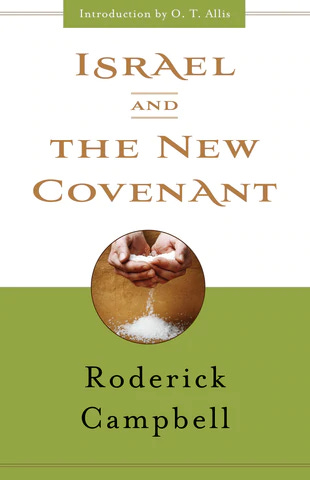
Red-Letter Christianity Versus Jot-and-Tittle Christianity
Only jot-and-tittle Christianity can vanquish the evils in the modern church and world.
Dear friends and supporters:
As a sustained proponent of plenary biblical inspiration (the Bible is equally inspired by God in all of its parts) and covenantal continuity (all of the Bible’s covenants coalesce into a single plan), I was naturally interested in this tweet from a noted Florida Democratic attorney and activist:
Ms. Keith is referring to the popular red-letter Bibles, in which the words of our Lord are printed in red. No doubt in lopping off Leviticus, she targets that book’s prohibition of and punishment for homosexuality, the mascot cause of the modern Left. Red-letter Bibles are a clever tactic for Leftists who wish to frighten Christians away from aspects of the Old Testament that moderns find outrageous.
Origin
The first-red letter Bible was produced by Louis Klopsch, a devout Christian entrepreneur at the turn of the 20th century. Klopsch was editor The Christian Herald, a conservative, a dispensational “prophetic” publication attracting such luminaries as Thomas De Witt Talmage, D. L. Moody, and R. A. Torrey. The red-letter Bibles were as much an anesthetic as theological statement, apparently, because Klopsch enjoyed adorning his 16–page magazine with all sorts of eye-catching, florid designs, and the red letters were certainly that. Klopsch wanted to highlight Jesus and his words.
Good Intentions, Bad Results
There’s not, in fact, the remotest hint he had anything but the best intentions in producing this aestheticized biblical text, but this is a prime example of how exciting, well-intentioned Christian ideas can lead to injurious conclusions. While no doubt all of the earliest devotees of the fledgling red-letter Bible believed in plenary inspiration, over time these Bibles cultivated among the wider (and more theologically dilute) Christian population a penchant for an exclusively “Christ-centered Christianity,” according to which everything and everybody else in the Bible receded in importance. In this sense, red-letter Bibles evolved into into red-letter Christianity.
The popular CCM artist DC Talk even wrote a widely performed song with the title “Red Letters,” specifically exalting the biblical words of Jesus Christ:
Ms. Keith’s tweet is dramatically removed from the views of most red-letter Christians, but her theologically catastrophic observation is a logical conclusion of red-letter Christianity, a version of the Faith which exalt the words of Jesus Christ in the Bible to a higher plane than the rest. Few Christians would carry the logic that far, but in the end it’s difficult to resist.
Ms. Keith’s tweet is so blundering that an extensive refutation is unnecessary. But note briefly:
We know the author
First: Contrary to her assertion, we do know who said the words in Leviticus: Moses. The red letters say so (Mark 7:9–10; Luke 16:29; 20:37; 24:44).
We know the authors
Second: Since all of the Bible, including Leviticus, is the inspired word of God, and since God is a Trinity, and since each of the three members of the Trinity participates when the other acts, when the Holy Spirit inspired Leviticus, Jesus Christ inspired it, so yes, Jesus wrote Leviticus (John 14:10; 1 Corinthians 2:10; 2 Corinthians 3:17).
Christians believe all the Bible
Third: Because all of the Bible is inspired of God, including Leviticus, and all of it is “profitable for doctrine, for reproof, for correction, for instruction in righteousness” (2 Timothy 3:16; there was no New Testament when Paul wrote those lines), you can in fact, call yourself a Christian if you believe in Leviticus. In fact, you can’t call yourself a Christian if you don’t (John 12:47–50).
(cont. below)
Covid lockdowns, the George Floyd killing and subsequent riots, Black Lives Matter, cancel culture, Critical Race Theory, the #MeToo Movement, the pervasiveness of gender dysphoria — these and other recent spectacles have exploded on the social scene. They have been such an unremitting part of our social environment over the past 2 to 5 years that they have insinuated themselves into our social currency, and it is difficult to objectively assess the state of recent culture while ignoring them.
The church has not eluded their impact. In some cases — the lockdown orders for all “nonessential” services comes to mind first — they have drastically shaped the very life of the church. Black Lives Matter, Critical Race Theory, and the #MeToo Movement have almost equally stamped themselves on a wide swath of Western Christianity, including conservative Christianity.
Church 2022 looks significantly different from its 2015 iteration, though even then signs of impending infection were not absent.
This present essay collection aims to assess the present state of the church from numerous perspectives. The writers (theologians, pastors, educators, scholars, thoughtful laymen) reflect a degree of theological diversity one might expect. All of them, however, are committed to biblical authority and historic Christian orthodoxy, including, specifically, historic Protestantism.
(cont.)
Red letter-ism self-refutes
Fourth: Ironically, red-letter Christianity refutes red–letter Christianity. If we read Jesus’ words in the red letters, we find that he affirms the black letters are just as important as the red letters.
For example, he tells his disciples about the Mosaic law, the same law Ms. Keith derides:
“Do not think that I came to destroy the Law or the Prophets. I did not come to destroy but to fulfill. For assuredly, I say to you, till heaven and earth pass away, one jot or one tittle will by no means pass from the law till all is fulfilled. Whoever therefore breaks one of the least of these commandments, and teaches men so, shall be called least in the kingdom of heaven; but whoever does and teaches them, he shall be called great in the kingdom of heaven.” (Matthew 5:17–19)
Every “jot or one tittle” (punctuation and pen stroke) is divinely authoritative and binding. Every word. Every letter. Every part of every letter.
And then in the desert temptation by Satan, Jesus cites Deuteronomy:
“It is written, ‘Man shall not live by bread alone, but by every word that proceeds from the mouth of God.’ ” (Matthew 4:4).
Every word. Including, especially, the Old Testament law.
Every word, every letter, not just the red ones.
If you exalt Jesus’ words, you must exalt more than Jesus’ words. If you believe in red-letter Christianity, you can no longer believe in red-letter Christianity.
Red letters insufficient
Fifth: Consider the Pauline corpus. As we examine Paul’s writings we observe a man heavily burdened with conveying truth to the fledgling churches and her leaders. At the heart of Paul‘s burden is his exaltation of Jesus Christ. More specifically, Paul is the theological interpreter of Christ’s redemptive work; Paul was the first Christian theologian (this is one of the chief theological insights of Richard B. Gaffin, Jr.). If you want to know most comprehensively what Christ’s death and resurrection mean, you won’t get that by reading the words of Jesus. Of course, Jesus clearly taught that his death was a ransom for sinners, and that he would rise from the dead in great victory. But he did not provide the kind of profound theological insights that Paul was later to convey (our union with Christ and present reign with him, Christ’s resurrection as the first fruits of ours, his resurrection as our justification, his crucifixion and resurrection as our sanctification, and much more) — nor was our Lord called to do that. His principal task was to accomplish redemption. Paul’s principal task was to explain that redemption.
Though Christ’s redemptive work dwarfs every other action of every other character in the Bible, Paul’s explanation of that redemption exceeds our Lord’s explanation of it, which was simple and brief. Therefore, it is correct to say that, from the standpoint of theological explanation, Paul’s words about redemption are superior to Jesus Christ’s. You won’t find in the red letters a comprehensive explanation of our Lord’s redemption necessary to Christian living. You’ll find them only in Paul’s letters. The red letters alone, while divinely inspired and infallible, must be supplemented by Paul’s letters.
Conclusion
Old-time theological liberals believed in a “canon within the canon”: one section of the Bible — the teachings of Jesus, the Sermon on the Mount, his good deeds — is the true canon (rule) to govern Christians today. That sub-canon was God’s word and the rest wasn’t all that important and maybe even repugnant to modern ears. Orthodox Christians saw that move for what it was — apostasy from the truth.
More pernicious among the orthodox was the formal acceptance of plenary inspiration while adopting an interpretive system that invalidates as binding huge chunks of the Bible. This tack among the orthodox preserves, as Stephen C. Perks notes, a long-recognized heresy:
When did the New Testament replace the Old? Not in the apostolic age. Not in the sub-apostolic age. Not in mediaeval times. Not at the time of the Reformation. Not until the twentieth century — except among the heretics. Until the twentieth century, the rejection of the Old Testament, Moses and the law of God was a definitive feature of heresy. It still is. This is the age of heresy. This continues to be a highly relevant and problematic issue.
Throughout the two thousand year history of Christianity there have only been two groups of people that have rejected the Old Testament, Moses and the law of God: heretics and modern evangelicals. Or rather, I should perhaps really say, only one group of people: heretics. The modern apostate and heretical Church has led the world to ruin.
This heresy is the logical destination of red-letter Christianity.
The Bible alone can tell us which parts have been rescinded in God’s redemptive-historical plan; for example, the old covenant sacrificial system, the dietary laws, and laws separating ethnic Jews from Gentiles, all of which had a “built-in expiration date.”1 But God reserves to himself the right to rescind any aspect of his holy word. He doesn’t delegate that task to man.
There are many causes for the flaccidity and failure of today’s church. Not least is red-letter Christianity. The entire word of God is necessary to the entire Christian life, the entire church, and the entire kingdom of God. Not one of them was designed to survive and grow without the entire Bible.
To truncate the Bible is to truncate the Christian Faith in the world. The truncated Bible of red-letter Christianity has destined our Faith to its a poor, impoverished, embarrassing, defeated showing in the face of today’s secularism, neo-paganism, and contra-Christian ideologies like Cultural Marxism, statism, populism, and feminism. To reverse our losses requires abolishing the red letters.
If you must have red letters, you’d need to print the entire Bible in red. Jot-and-tittle Christianity must supplant red-letter Christianity.
Will you consider a tax-deductible donation to CCL via PayPal or Venmo? Or mail a check to CCL, Box 100, Coulterville, CA 95311. God uses you to keep us going — and expanding.
Personal
Sharon arrived home from Pennsylvania yesterday. Her mother is still in the hospital recovering from surgery but growing stronger day by day. Deep thanks for all of you for praying. Please persist.
Tomorrow Sharon and I head out on the road to Golden, British Columbia and Edmonton, Alberta for the Runner Academy and Mission of God conference, respectively. I’ll be lecturing and preaching many times and counseling many friends, old and new. Please pray that God’s hand is on this vital work.
We’re doing the final edits of Failed Church: Restoring a Vision of Ecclesial Victory. Please plan to get your copy when it’s soon published and promote it widely. It would go a long way in restoring virile Christianity to the presently desiccated church.
My e-letters will likely be more intermittent and shorter the next few weeks while I’m on the road.
Please send a donation to CCL today if you can. And please pray.
Yours for jot-and-tittle Christianity,
Founder & President, Center for Cultural Leadership
Cure for Red-Letter Christianity
Here are three books that will help overcome red-letter Christianity:
More great stuff:
The Center for Cultural Leadership site is here.
My Amazon author page (print and digital) is here.
You can find my sermons and lectures at my YouTube channel.
Sign up to get my blog updates here.
Here’s my Twitter feed.
If you want to get the free exclusive hard copy publication Christian Culture, please send me a Facebook private message.
The CCL phone number is 831-420-7230.
The mailing address is:
Center for Cultural Leadership
P. O. Box 100
Coulterville, CA 95311
Walter C. Kaiser, Jr., “The Place of Law and Good Works in Evangelical Christianity,” A Time To Speak, A. James Rudin and Marvin R. Wilson, eds. (Grand Rapids: Eerdmans, 1987), 124.

















Excellent Son! As you have said so often, "All the Bible for all of Life!"
Dad
Thanks so much, Dad.